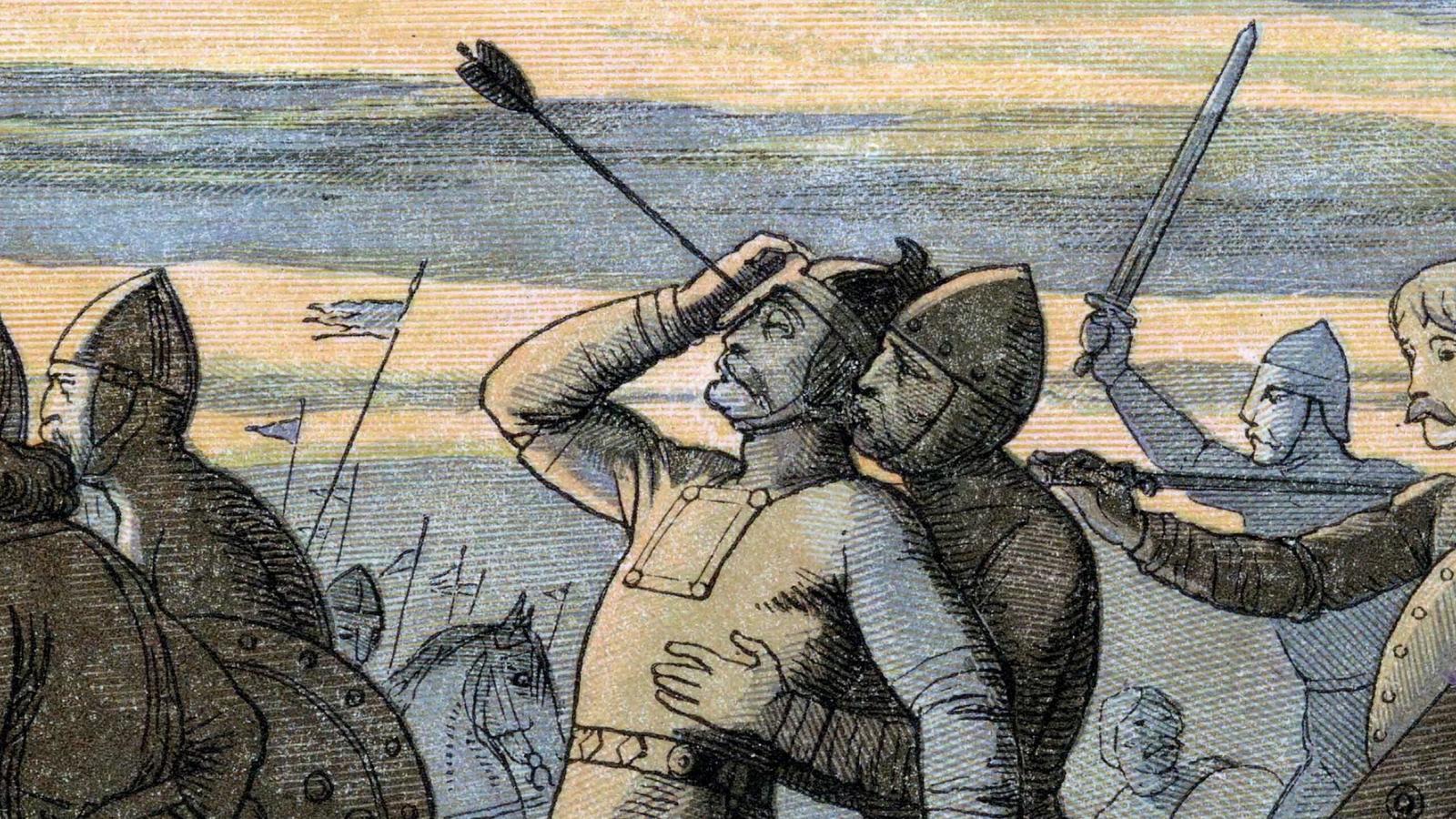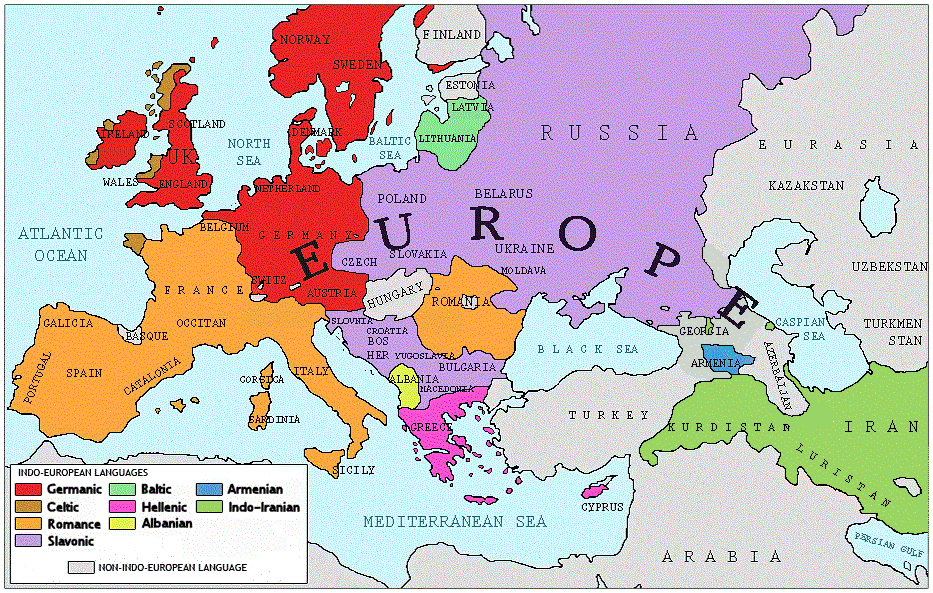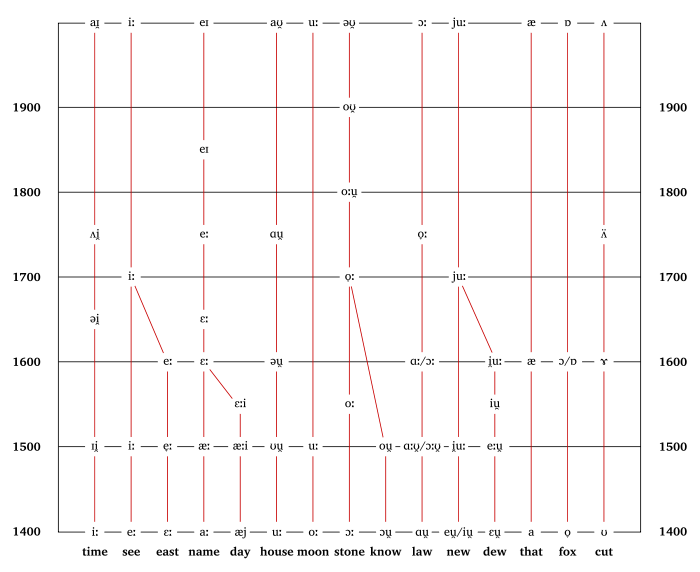
In our articles on Habré about the English language, we often dive into the historical jungle. Linguistics is inextricably linked with history, and in most materials there is a mention of Old English, Middle English, or Early Modern English.
«i» . , . , . .
, .

- , . .
. , «» «father», — «vater», — «pater», — «pitr». , , -.
, . , — .
2,7 36% .
—
, 450 , , .
, , . , 80 , 12 .
— 44 436 .. . — .
, :
: , .
: , .
: , , , , .
: .
: .
— .
. - IX , , , , .
, . «»,
þeodcyninga, þrym gefrunon, hu ða æþelingas ellen fremedon.
Oft Scyld Scefing sceaþena þreatum, monegum mægþum, meodosetla ofteah, egsode eorlas. Syððan ærest wearð feasceaft funden, he þæs frofre gebad, weox under wolcnum, weorðmyndum þah, oðþæt him æghwylc þara ymbsittendra ofer hronrade hyran scolde, gomban gyldan. þæt wæs god cyning. |
So. The Spear-Danes in days gone by and the kings who ruled them had courage and greatness. We have heard of those princes' heroic campaigns. There was Shield Sheafson, scourge of many tribes a wrecker of mead-benches, rampaging among foes. This terror of the hall-troops had come far. A foundling to start with, he would flourish later on as his powers waxed and his worth was proved. In the end each clan on the outlying coasts beyond the whale-road had to yield to him and begin to pay tribute. That was one good king. |
, — , . , .
— ( )
X . 1066-1072 .
. (), , , .
. . , , . « » ( XIV )
1. Whan that Aprill with his shoures soote The droghte of March hath perced to the roote, And bathed every veyne in swich licour Of which vertu engendred is the flour;
5. Whan Zephirus eek with his sweete breeth Inspired hath in every holt and heeth The tendre croppes, and the yonge sonne Hath in the Ram his half cours yronne,
9. And smale foweles maken melodye, That slepen al the nyght with open ye (So priketh hem Nature in hir corages), Thanne longen folk to goon on pilgrimages, And palmeres for to seken straunge strondes, To ferne halwes, kowthe in sondry londes; |
1. When April with its sweet-smelling showers Has pierced the drought of March to the root, And bathed every vein (of the plants) in such liquid By which power the flower is created; 5. When the West Wind also with its sweet breath, In every wood and field has breathed life into The tender new leaves, and the young sun Has run half its course in Aries, 9. And small fowls make melody, Those that sleep all the night with open eyes (So Nature incites them in their hearts), Then folk long to go on pilgrimages, And professional pilgrims to seek foreign shores, To distant shrines, known in various lands; |
(. )
, ,
, ,
,
,
,[7]
, ,
,
,—
;
- . .
. , . .
, - . «to be»

, , , .
. « ». , «knight» () [ˈkniçt]. «k», «gh» . «e» , XIII-XIV «».
, , XIII , . , XIV .

XIV , - . , .
XV . . , , . , . : . « , , , ».
, - , , . 1470 , , , .
:
. .
, « », 2200 . . , .
Two households, both alike in dignity,
In fair Verona, where we lay our scene,
From ancient grudge break to new mutiny,
Where civil blood makes civil hands unclean.
From forth the fatal loins of these two foes
A pair of star-cross’d lovers take their life;
Whose misadventured piteous overthrows
Do with their death bury their parents’ strife.
The fearful passage of their death-mark’d love,
And the continuance of their parents’ rage,
Which, but their children’s end, nought could remove,
Is now the two hours’ traffic of our stage;
The which if you with patient ears attend,
What here shall miss, our toil shall strive to mend.
(. . )
, ,
.
,
,
, .
, , ,
.
—
.
, XV XVII . , .
, , .
Caesar, when that the traitor of Egypt,
With th'honorable head did him present,
Covering his gladness, did represent
Plaint with his tears outward, as it is writ;
And Hanniball, eke, when fortune him shit
Clean from his reign, and from all his intent
Laughed to his folk whom sorrow did torment,
His cruel despite for to disgorge and quit.
, «shit» — , . «shut».
«shut». « ».
What devil art thou, that dost torment me thus?
This torture should be roar'd in dismal hell.
Hath Romeo slain himself? say thou but 'I,'
And that bare vowel 'I' shall poison more
Than the death-darting eye of cockatrice:
I am not I, if there be such an I;
Or those eyes shut, that make thee answer 'I.'
If he be slain, say 'I'; or if not, no:
Brief sounds determine of my weal or woe.
XVII . . , 26 , . , .
1604 , 2500 . . «Dictionary of the English Language» , 43 000 .
, «thou» . . , . .
1800 , .
, , . XVIII-XIX , .
, « » Upper-Intermediate. , 1837-1839 .
Among other public buildings in a certain town, which for many reasons it will be prudent to refrain from mentioning, and to which I will assign no fictitious name, there is one anciently common to most towns, great or small: to wit, a workhouse; and in this workhouse was born; on a day and date which I need not trouble myself to repeat, inasmuch as it can be of no possible consequence to the reader, in this stage of the business at all events; the item of mortality whose name is prefixed to the head of this chapter.
. , .
, , , , , - . , - , , , - , .
, , .
. 200 «shall», , . , .
— , . , . , IX .
, — . , . .
- EnglishDom.com —

! 3 !
- ED Words . enghistory ED Words. 26.01.2022.
: